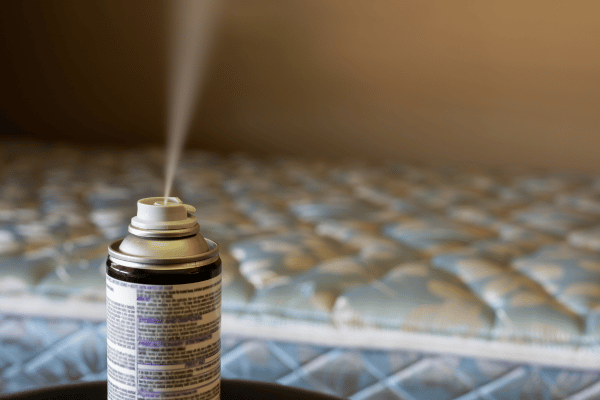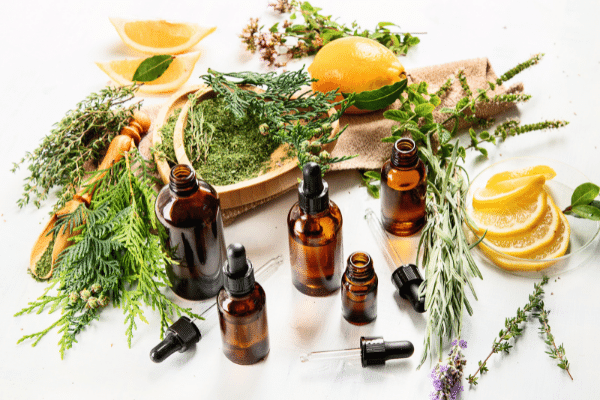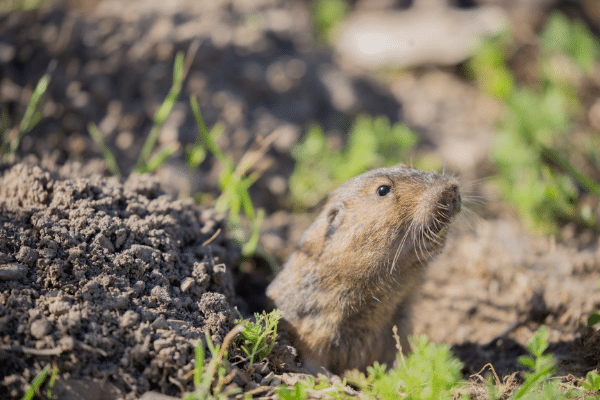- Home
- Rabbit Trapping
- Rabbit Teeth
Rabbit Teeth
This post may contain affiliate links so I earn a commission.
Did you know rabbit teeth grow continually throughout their life?
Therefore, a rabbits diet and what they chew on is not only important for nutrition, but it's also important for maintaining their dental health.
Rabbits have 28 total teeth that never stop growing.
If the rabbit does not continually chew and wear down those teeth, they get too long.
These are known as open rooted teeth, which means they will grow continually throughout their lifetime.
In fact, the teeth can get so long that they will actually prevent the rabbit from being able to eat anything at all.
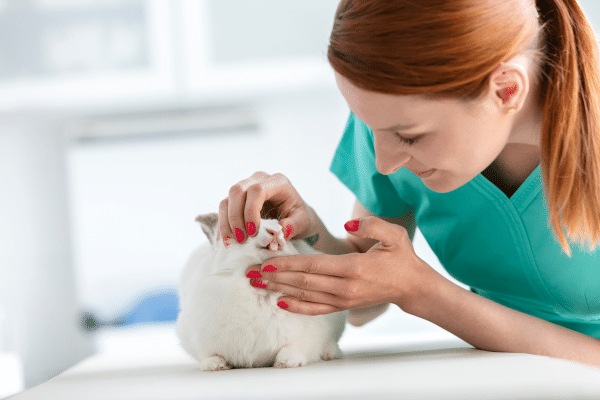
To learn more about proper dental care for domestic rabbits and understand why wild rabbits seem to chew everything in sight, let's look a little closer at a rabbit's lifestyle.
What Do Rabbits Like To Chew On?
Rabbits are gnawing herbivores that eat grasses, small twigs, branches, bush and almost any other type of vegetation.
These types of plants or shrubs are typically found around your house for decorative reasons and they make a perfect habitat for rabbits.
Your plants, bush or shrubs not only provide their nutritional needs, but it's also the perfect vegetation to gnaw on to keep their teeth from becoming too long.
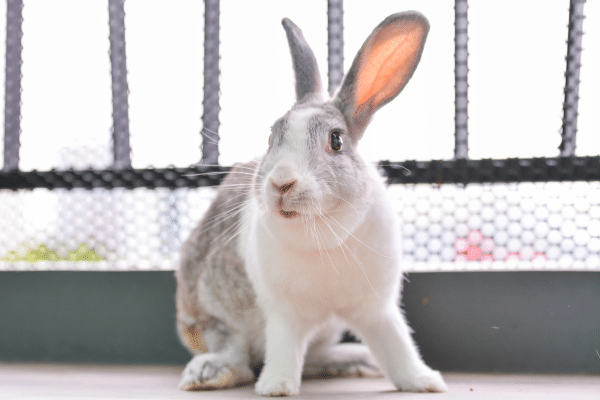
This is why you see rabbits constantly chewing on your bush or other landscaping items around your house.
What Should Rabbit Teeth Look Like?
The teeth on a rabbit should look creamy white and smooth except for a vertical line down the center of the top ones.
It's recommended you check your rabbit's teeth about every week to make sure they're healthy.
The teeth on a baby rabbit will fall out as they get older, kind of like ours when we are young.
These baby teeth are replaced by much sturdier adult teeth which should last a lifetime if they're properly cared for.
Domestic Rabbits
Domestic or pet rabbits a more likely to have tooth issues when compared to a wild rabbit.
It's not that wild rabbits can't have tooth problems, but the ability to fully study this issue in a wild population is not reasonable.
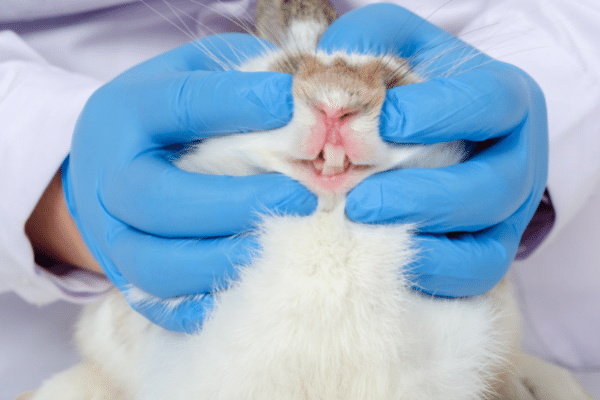
However, domestic rabbits can have issues if their owner doesn't provide enough hay, grass or vegetation for the rabbit to gnaw on to keep their teeth worn down.
Pellet food alone for rabbits will not provide enough abrasive material to promote healthy rabbit teeth.
The pellets are easily broken down by the rabbit's molars therefor not providing enough abrasion to grind down the teeth.
If your rabbit's teeth have become too long they can be trimmed, however, I would recommend a trained professional do the trimming.
If you trim them improperly or make a mistake, it's possible to crack or damage the tooth.
Do Rabbits Bite?
Although it's uncommon, a rabbit will bite.
A bite from a rabbit is usually due to stress or fear, commonly caused by startling the rabbit or picking it up when it's not ready.
When trapping and relocating wild rabbits, I've handled dozens of wild rabbits that never bit me and allowed me to pick them up, and even hold them like a pet rabbit.
In fact, rabbits love to be cuddled, and as long as you don't lift them really high above the ground which makes them feel insecure, they will love to sit on your lap and allow you to hold them.
Worst case scenario, if you are bitten by a rabbit, it will be painful but they usually don't cause any real health concerns.
Overall
Whether you have a pet rabbit at home or wild rabbits seem to be chewing everything in sight, rabbit teeth require constant maintenance and attention.
Unfortunately, what's good for a rabbit's tooth is not always good for your landscaping and shrubs……..but now at least you know why!

